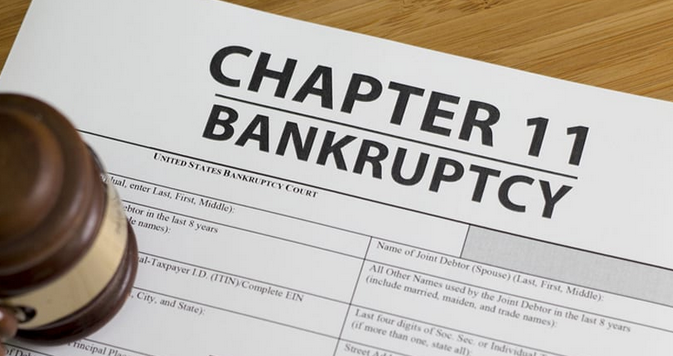What is Chapter 11 Bankruptcy?

If you are considering bankruptcy, you’re probably wondering what kind of bankruptcy will work most in your favor. What is Chapter 11 bankruptcy? Is Chapter 11 bankruptcy the best option for you? How does Chapter 11 bankruptcy work?
We will show you how Chapter 11 bankruptcy works and how it can help you.
Understanding Chapter 11 bankruptcy
Chapter 11 bankruptcy is a legal process that allows a business to reorganize its finances and restructure its debt. The goal of Chapter 11 bankruptcy is to allow the business to keep operating while it repaid its creditors over time.
In some cases, the business may be sold in order to repay its debts. Chapter 11 bankruptcy is often used by businesses that are struggling to stay afloat, but that still have a chance of being profitable in the future.
How does Chapter 11 Bankruptcy work?
Under Chapter 11, the business is able to develop a plan to pay off its debts. This plan must be approved by the bankruptcy court. The business is then able to operate under the terms of the plan. This can include selling off assets, reducing expenses, or increasing revenue.
Chapter 11 bankruptcy can be a complex process, but it can be a viable option for businesses that are struggling to stay afloat. If you are considering Chapter 11 bankruptcy, it is important to speak with an experienced bankruptcy attorney to discuss your options and to ensure that you are taking the right steps for your business.
Is Chapter 11 bankruptcy the best option for you?
When you are feeling overwhelmed by debt, it is natural to look for a way to make it all go away. Bankruptcy may seem like the perfect solution, but it is important to understand all of your options before making a decision.
Chapter 11 bankruptcy is a type of bankruptcy that is designed for businesses. If you are thinking about filing for Chapter 11 bankruptcy, here are some things you should know.
1. Chapter 11 bankruptcy can help you keep your business afloat.
If your business is struggling financially, Chapter 11 bankruptcy can help you keep it afloat. The bankruptcy process can provide you with much-needed financial relief and allow you to reorganize your business.
2. You will need to file a detailed bankruptcy petition.
When you file for Chapter 11 bankruptcy, you’ll need to provide a detailed bankruptcy petition. This document will outline your business’s financial situation and explain why you need to file for bankruptcy.
3. You may be required to liquidate your assets.
In some cases, you may be required to liquidate your assets as part of the bankruptcy process. This means that you’ll sell off your assets and use the proceeds to pay back your creditors.
4. You will need to follow the bankruptcy rules.
As part of the Chapter 11 bankruptcy process, you will need to follow the bankruptcy rules. This includes attending court hearings and abiding by the bankruptcy court’s orders.
5. You can get relief from your creditors.
One of the main benefits of Chapter 11 bankruptcy is that you can get relief from your creditors. This means that you can stop making payments to your creditors and start rebuilding your life.
6. It can be expensive to file for Chapter 11 bankruptcy.
Filing for Chapter 11 bankruptcy can be expensive. You have to pay court fees and hire an attorney.
7. There is no guarantee that you’ll be approved for Chapter 11 bankruptcy.
There is no guarantee that you will be approved for Chapter 11 bankruptcy. The bankruptcy court will review your case and make a determination based on your financial situation.
8. You can’t file for Chapter 11 bankruptcy if you’re a Individual.
Only businesses can file for Chapter 11 bankruptcy. If you are an individual, you can file for Chapter 7 or Chapter 13 bankruptcy.
9. You can’t use Chapter 11 bankruptcy to avoid taxes.
Chapter 11 bankruptcy is not an excuse to not pay any taxes.
Key takeaway
Chapter 11 bankruptcy is a form of reorganization or restructuring your debts. It allows businesses to remain in business while they work out a plan to pay their debts. This type of bankruptcy allows a business to continue operating as usual while it works out a plan to pay back creditors and investors
